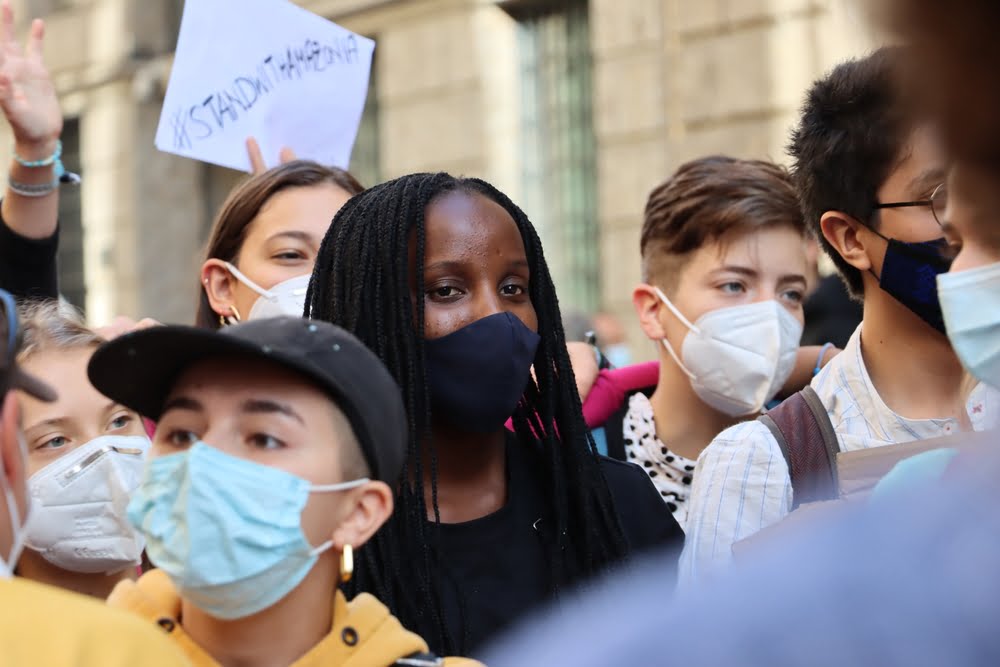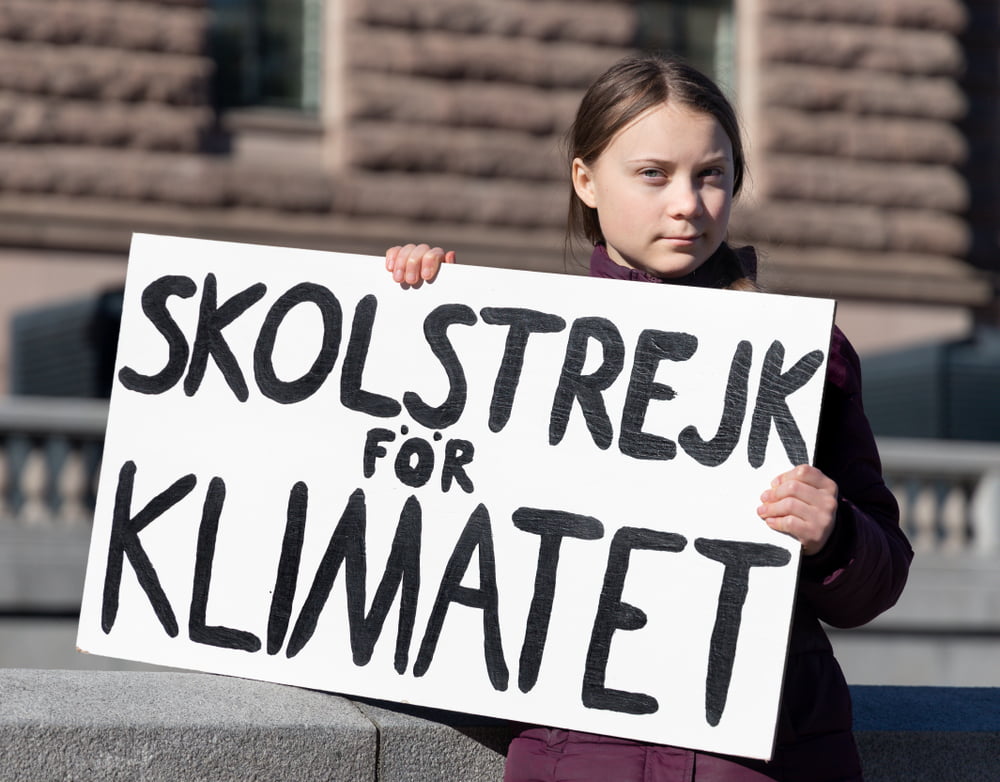An open letter to the global media, written by Greta Thunberg and Vanessa Nakate, draws attention to fundamental issues. Melting glaciers, wildfires, droughts, deadly heat waves, floods, hurricanes, biodiversity loss. These are all symptoms of a destabilizing planet that is constantly happening around us. Those are the kinds of things the press reports on. The climate crisis is however, much more than that. If you really want to contain the climate crisis, you also need to report on the fundamental issues of time, holistic thinking and justice.
First, the concept of time. If your stories don't include the idea of a ticking clock, then the climate crisis is just a political topic among other topics, something we can just buy, build, or invest in. Leave out the time aspect and we can continue much like today and "fix the problems" later. 2030, 2050 or 2060. The best available science shows that at our current rate of emissions, our remaining carbon budget to stay below 1,5°C before the end of this decade runs out.
Second, holistic thinking. When we look at our remaining carbon budget, we have to count all the numbers and include all our emissions. Currently, you're letting high-income countries with big polluters off the hook, allowing them to hide behind the incomplete statistics, loopholes, and rhetoric they've fought so hard for over the past 30 years.
Third, and most importantly, justice. The climate crisis is not just about extreme weather. It's about people. Real people. And the people who have done the least to create the climate crisis suffer the most. And while the South is on the front lines of the climate crisis, it hardly ever makes the front pages of the world's newspapers. While the Western media focuses on wildfires in California or Australia or floods in Europe, climate-related disasters devastate communities across the South but receive little attention.

To include the element of justice, you cannot ignore the moral responsibility of the North to act much faster in reducing their emissions. By the end of this year, the world will collectively have consumed 89% of its carbon budget, giving us a 66% chance of staying below 1,5°C.
Therefore, historical emissions not only count, but are in fact at the heart of the climate justice debate. And yet historic emissions are still almost completely ignored by the media and those in power.
To stay under the goals of the Paris Agreement and thereby minimize the risks of irreversible chain reactions beyond human control, we need immediate, drastic, annual emissions reductions that the world has never seen. And because we don't have the technological solutions that can bring anything close to that in the near future, that means we need to make fundamental changes in our society. This is the inconvenient result of our leaders' failure to address this crisis.
The responsibility to help correct this malfunction cannot be overemphasized. We are social animals and if our leaders and our media don't act like we're in a crisis, of course we won't understand. One of the essential elements of a functioning democracy is a free press that informs citizens objectively about the major challenges facing our society. And the media should hold the people in power accountable for their actions, or inaction.
swearword neutral
Climate activist Greta Thunberg has pledged to become "swearword neutral". She made that commitment on Twitter after she was filmed chanting "you can stab that climate crisis up your ass" during a demonstration in a Glasgow park where the COP26 climate summit is being held. Swearword neutral is a nod to climate neutral.
Thunberg assured her 5 million followers on Twitter on Wednesday that she will make amends. "If I say something inappropriate, I promise to compensate with a nice statement," she joked. The Swedish teen did not say why she should change her language, but British media linked the criticism she received after shooting the film in the park. Those images have been viewed millions of times on social media.
Thunberg, 18, is one of the most famous climate activists in the world. She traveled to Scotland for the COP26 climate summit, although she said she was not officially invited. Thunberg is outspokenly critical of international climate policy. She has said that conferences like COP26 can only lead to real change if there is strong public pressure.
Nakate is a Ugandan climate justice activist and founder of the Rise Up Movement. Thunberg is a Swedish climate activist and co-founder of the Fridays for Future movement.
Also read: Transport companies on their way to a sustainable transport sector


